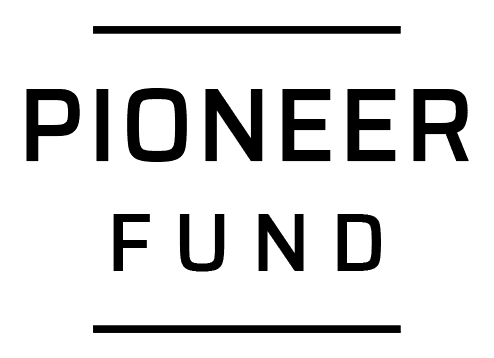Startup Spotlight: Coach Catalyst
Startup Spotlight is an interview series where we ask health, fitness, and wellness startups that use Terra, to share their wisdom from their journey to success and also where they see fitness data going in the future.

In this spotlight, we connected with Kane Sivesind, co-founder of Coach Catalyst, a platform that makes it easy for fitness, nutrition, and health coaches (and more) to interact with their clients and increase their accountability. Coaches can set up customizable programs on Coach Catalyst and clients can then follow along and complete program tasks using the MyCoach app they built.
How did you come up with the idea?
It started with my co-founder Trevor and I in college. He and I were playing basketball in a small school in Minnesota and were always interested in health, fitness, and athletic performance. After college, we went our separate ways, he went to play pro ball in Germany and I ended up running a gym for almost a decade. Our gyms were very client-centric, coaching-oriented gyms, but we always had this huge issue: we see clients for 3 hours a week, what do they do in the other 165 hours? And that's what really makes the difference in their results.
So we tried pen and paper, different habit tracking apps, and texting and emailing clients, but nothing really worked. So finally, two guys without any software background decided we need to start a software company for this. And we thought hey, at the very least, if nobody else was interested in this, we are going to build this for ourselves and be able to keep our clients accountable and get their results and grow our gyms. So that's kind of how we started, and luckily other coaches had the same issue and were also looking for the same thing. We've been growing ever since.
How did you turn it into a company?
So we started out of Madison, which is a big college town. We started working with some computer science groups at the University of Minnesota to help build our MVP. That went okay, but students have their own priorities working on classes so our project was more of a side thing for them at the time. After 9 months we had a prototype, but it didn't do what we wanted it to do. Eventually, we ended up hiring a dev. shop here in Madison to build it out instead. We kind of thought, naively at the time, hey we'll just build something, we'll just be able to use it, and we'll be done developing. And of course, that didn't happen. First, we built the very basic, functioning software that we started to show to people and got some beta testers. We finally released it to the public in 2017. Looking back on it, it was a prototype but it worked and it showed us there was a demand for it.
What's been the biggest challenge so far?
The big thing is reaching the right type of people. We started with habit-based coaching and that was it. So a very specific type of coach loved us, but not everybody saw a need for what we initially offered. We then pivoted and incorporated workouts and have become a fully-fledged coaching tool now. And so now, it's mostly about getting the word out and getting into contact with the right coaches. We are well connected in certain areas of fitness, but the space is broad and there are various types of coaches, so it's more just about getting in front of the right coaches right now.
Another challenge is to make the client interface as simple as possible. Our coaches' clients don't want to read half an hour of words and videos on workouts, they want to easily view and complete the exercises they need with the right form and get on with their day.
Our big goal has always been: can we help effect change in a million lives?
Our biggest achievement so far was when we hit 500k end users, as in 500k end-clients using the software. One million seemed like a big goal to us at first, like a million people sounded crazy, how could our software do that? But, as we started to grow and hit that 500k mark, we started saying okay this is definitely achievable and we should probably raise that goal and go for more than a million.
We want to make it easier for coaches to coach more clients and enhance that relationship using technology.
We have now almost fully developed the main features we want to do for software. We have a couple of things where we wanna enhance or improve things. The biggest goal we always have is to create a better coach-client relationship. We don't want technology to be like this cold thing that clients use, or coaches using technology like automation where they forget about it after and don't ever have to do it.
A lot of stuff we're looking at doing is using AI or machine learning to predict client behavior or needs for coaches. Giving coaches the information they need ahead of time so that they can easily make better coaching decisions with their clients. So instead of a coach logging in and seeing 200 clients and trying to figure out what's going on, we want to provide coaches with insights like "hey client X has missed a few workouts in a row or has not logged their weight in a while, let's reach out and get them back on track". So using these algorithms to make coaches' lives easier and give them the right data they need.
How are you using health data?
So this is a big thing. As a coach, I want as much data as I can get. Are my clients being active in taking their daily steps? Are they getting their macros and nutrition right? How many hours of sleep are they getting a night? All of that stuff plays into how I coach a client and what results they get. We've always gone back to consistency: are they doing the things we want them to do as coaches on a consistent basis? And honestly, before Terra, we didn't have a great way to collect all that. We could only collect habits or collect workouts. But clients would have to send in, or manually type in, their hours of sleep on our app. So they would have to track it and log it on their Oura or WHOOP band and then manually enter it on Coach Catalyst, and clients weren't gonna do that. We wanted to avoid repeated data entry for people as much as possible. So being able to pull in all health and nutrition data for a coach to look at in one place and see everything has been great. It's been the way for coaches to get as much data as possible, to coach their clients better and get them the best results.
What are some of the biggest issues/gaps in the space?
I think there are too many apps coaches and clients might be trying to use. So we see it like, as a coach, I am probably going to use multiple platforms or apps between my scheduling, billing, coaching, and more. As a result, clients are being given too many apps to have to access. You need to go to Facebook to see the social community, you're gonna go to this app to schedule and pay sessions, you're gonna go to this app to track your workouts, and then you're gonna go here for educational info. That's just too many. So I think consolidating and trying to get it down to one app for clients is huge. Another thing is that some coaches are not focusing on the right things for clients. For our general population that we work with - adults just trying to be healthier - consistency is the number one thing: did you do what you were supposed to do? I don't really need to know if you hit 90% of your 1RM, I need to know if you did your workout or not.
In terms of health data today, I mean if you look at myself I have an Oura ring to track my sleep, a Garmin watches to track my activity during the day, and I use a different device to track HRV in the morning. I use a bunch of different devices because each one has a specific use case for me. I used to go to each app to see it but did not have a single app to see one big picture. With us using Terra now, I can just go on the Coach Catalyst app and see all this data in one place and have a great view of exactly what's going on.
What do you see for the future?
The big thing is predictiveness or looking at data to predict what's going to happen for clients. So instead of being reactive, coaches can now be proactive. I think, number one, coaches haven't always had the tools to do it, and I don't think they were thinking that way either. So being able to give them the tools to start thinking more proactively and get ahead of clients, and make sure their clients get back on track quicker. Cause everybody is going to fall off at some point, but it's about how can we not have two bad days in a row. You're gonna have a bad day or miss things sometimes, but can coaches better make sure it doesn't slip into more than one? Helping coaches do that effectively is a big thing for the future.
I think using more of the data we are pulling in is going to help with the predictive nature that we want to do. Originally, when looking at somebody, we can use AI or ML to predict based on their habit checkings, but that's just one small piece. The more data points you have the better all those algorithms and predictive models work. So if we can now pull in a client's step data, HRV, heart rate, sleep data, nutrition, and macros using a tool like Terra, we can make our algorithm and predictive behavior so much better and really more worthwhile for coaches and clients. I think there's going to be a point where we use this to actually coach clients too because different people respond to different types of coaching. Some people love the more in-your-face, "hey just do it" type of thing while others like the more guided "hey this is what we're gonna do" coaching. I think being able to use the data that we collect along with what we learn about clients on the social side, we're going to be able to have the perfect coach specifically for them. I think that's kind of the future that we see.
Anything else you'd like to mention?
I think the big thing is, we technically could have probably gone out and created all these direct integrations with different wearable providers if we wanted to ourselves, but the issue is the time it would take to do that, the opportunity cost of not working on other features that are more core to our platform and to the coaches, and the maintenance of doing that - like anytime an integration changes we have to figure it out and do it all over again. So I think Terra has been a huge timesaver and benefit for one of the most requested things our coaches and our end-users want.





